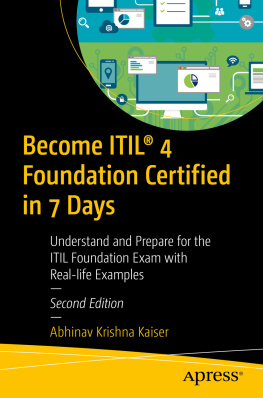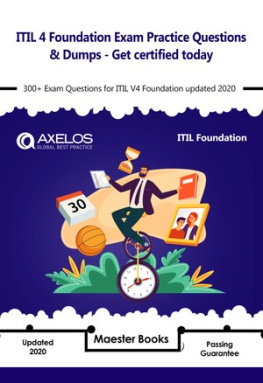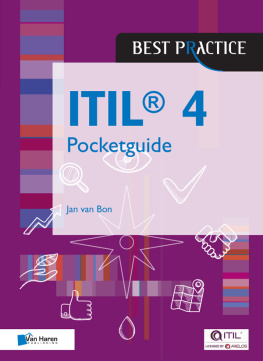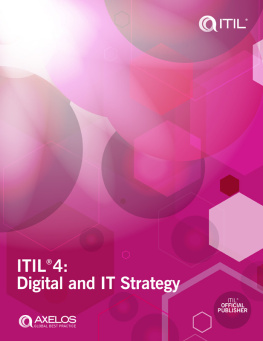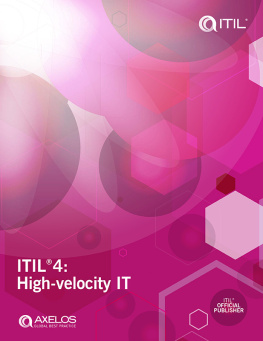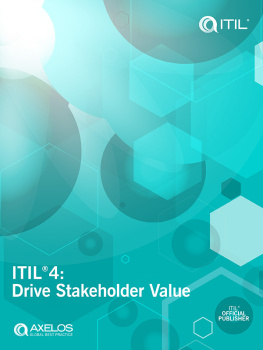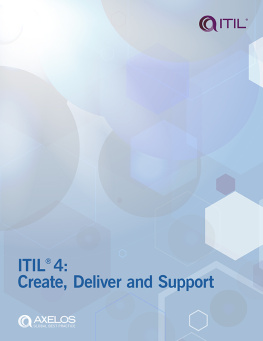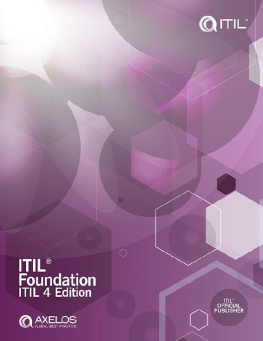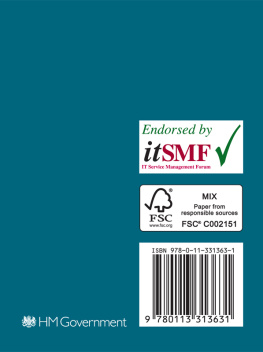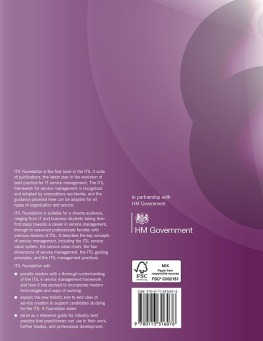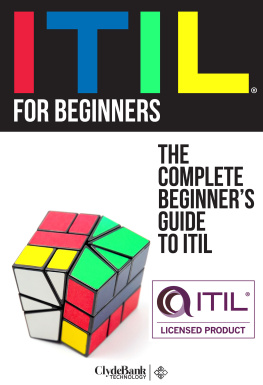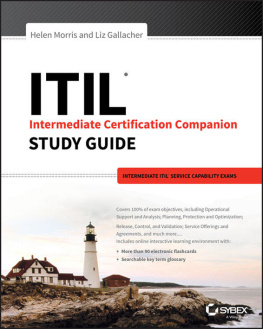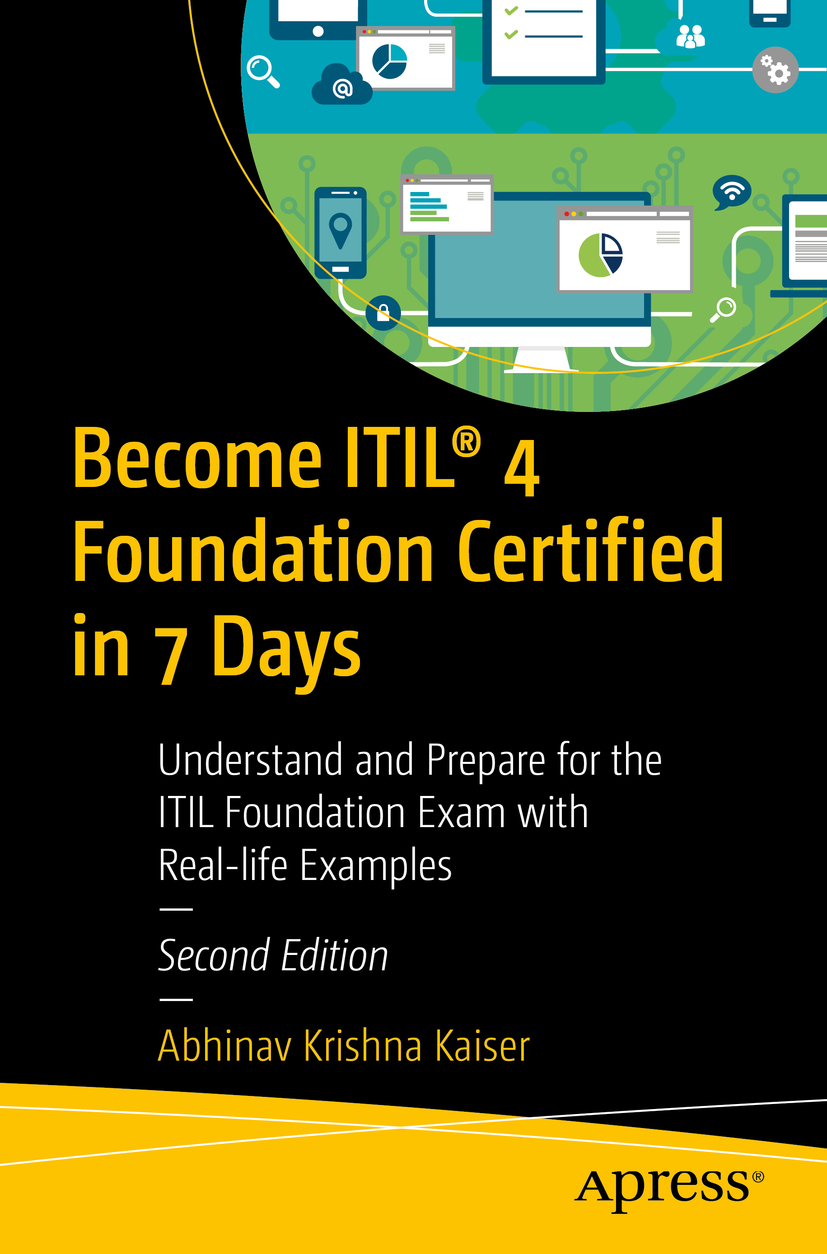Abhinav Krishna Kaiser
Staines, UK
Any source code or other supplementary material referenced by the author in this book is available to readers on GitHub via the books product page, located at www.apress.com/978-1-4842-6360-0 . For more detailed information, please visit www.apress.com/source-code .
ISBN 978-1-4842-6360-0 e-ISBN 978-1-4842-6361-7
https://doi.org/10.1007/978-1-4842-6361-7
Abhinav Krishna Kaiser 2021
Apress Standard
The use of general descriptive names, registered names, trademarks, service marks, etc. in this publication does not imply, even in the absence of a specific statement, that such names are exempt from the relevant protective laws and regulations and therefore free for general use.
The publisher, the authors and the editors are safe to assume that the advice and information in this book are believed to be true and accurate at the date of publication. Neither the publisher nor the authors or the editors give a warranty, expressed or implied, with respect to the material contained herein or for any errors or omissions that may have been made. The publisher remains neutral with regard to jurisdictional claims in published maps and institutional affiliations.
Distributed to the book trade worldwide by Springer Science+Business Media New York, 1 New York Plaza, Suite 4600, New York, NY 10004-1562, USA. Phone 1-800-SPRINGER, fax (201) 348-4505, e-mail orders-ny@springer-sbm.com, or visit www.springeronline.com. Apress Media, LLC is a California LLC and the sole member (owner) is Springer Science + Business Media Finance Inc (SSBM Finance Inc). SSBM Finance Inc is a Delaware corporation.
Preface
In 2017, two years before ITIL 4 hit the scene, I wrote Become ITIL Foundation Certified in 7 Days. When ITIL 4 was announced in 2018, I felt that I was hit by a crater. I had dodged several requests from publishers over the years, and when I finally decided to write a book on ITIL, the version was coming to a premature end. Nevertheless, my ITIL foundation book became an instant success within the year of publication and my publisher was soon knocking on my door again to write the second edition. I am thankful to all the readers of the first edition for extending their support in making my book the premier guide for taking up the ITIL Foundation examination. ITIL V3 may have been officially upgraded to ITIL 4, but the framework lives on. The logical sequence of developing a service from nothingness to a full-blooded beast is a journey that lives on in most organizations, and its greatest strength is that its application is still relevant to non-IT organizations. ITIL V3 is a beautiful framework that is evergreen and provides a strong foundation for ITIL 4 and DevOps to flourish.
When my publisher approached me for the second edition, I told them that the first and second editions are worlds apart. An edition change would generally have updates that are overshadowed by the remaining content of the book. In contrast, the book that I was asked to write as the second edition was going to be the polar opposite. I was going to rewrite at least 80 percent of the book; such was the change between the two ITIL versions.
Between my first and second editions, I wrote a book in 2018 on an ITIL framework that would work in DevOps projects. Reinventing ITIL in the Age of DevOps was built on ITIL V3 and considered tweaks and customizations to the organization structures, and most ITIL processes went under the scanner for DevOps refitting. Plus, special emphasis and opportunities were identified where technology and automation could be employed for increasing efficiency and reducing defects. The framework tweak that I proposed in the book is relevant with ITIL 4, as some of the tweaks that I had preempted in my framework have been considered in ITIL 4 and blend seamlessly.
One of the core principles of ITIL is to give liberty for service architects to come up with a framework design that fits the organization. Reinventing ITIL in the Age of DevOps adapts the ITIL framework to work for DevOps, in the process prescribing ITIL for projects that work in a DevOps mode. If you are looking to get into ITIL or transition into ITIL 4 from ITIL V3, Become ITIL 4 Foundation Certified in 7 Days is your go-to book. If you are looking to implement ITIL in a DevOps setting, Reinventing ITIL in the Age of DevOps should be your best bet.
I started my ITIL journey way back in 2005-2006 with the second version of ITIL. I grew rapidly from being an ITIL practitioner to an ITIL consultant and undertook several ITIL implementations over the years. My perspective of the world of services changed as I started donning the role of a service architect and then eventually the ITIL Expert track that I embarked on. As I started to explore ITIL and manipulate services to get the intended results, the ITIL framework workings seemed like second nature to me. I headed the training and consulting practice in an organization and conducted hundreds of Foundational and Expert-level trainings. I gained fame and positions of authority, and then something happened.
An organization change resulted in me getting grouped with DevOps consultants and the DevOps practice. At around the same time, my manager who was familiar with my expertise (which was ITIL at the time and not DevOps) quit the organization. A new manager took over and one day while I was packing up, walked up to me and said: Abhinav, I am looking at you to be one of the DevOps trainers. I could have told him that I am not DevOps, but ITIL. I remained silent and accepted the assignment. For the next month and a half, I ate, slept, and dreamed DevOps and DevOps alone. I studied everything on DevOps that I could get my hands on. In those days, DevOps resources were few and far between, unlike today.
The assignment started and I began with a bang. Combined with my training prowess, DevOps knowledge that I had acquired made me an instant success. I started training IT developers and testers across multiple continents for the next 12 months on various DevOps concepts and processes. My life had changed the moment I remained silent, and I never looked back at my decision to jump ship from one segment of IT to another. As I delved deeper into DevOps, it was apparent that DevOps and ITIL were not worlds apart, and there was a bridge that was believed to be too far. Through this and my Reinventing book, I hope that I have brought the two parcels of IT together.
As the world is getting flatter, so are the different branches in IT. They all seem to be converging under the DevOps umbrella. Prior to my DevOps career, I would have sworn that you are either in service management or in project management (development) and your career will go into either of these areas. These days, I see the convergence. I have designed DevOps architectures where both development and service management happen in the same hut, and the same set of people are responsible for both. When you read

